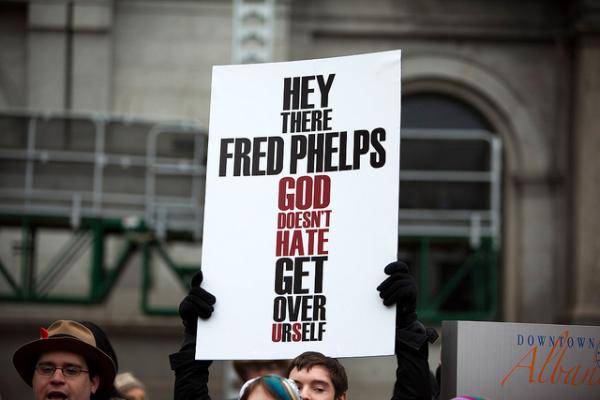An Irish woman who was a victim of sexual abuse as a child is among eight members of a special commission appointed by Pope Francis on Saturday to start the long and arduous process of confronting the church’s chronic sexual abuse problems.
The creation of the commission is one of the strongest steps Francis has taken to confront the problem that has severely stained the church’s reputation and cost it billions in court settlements and legal fees. The pontiff has called the issue of sexual abuse “the shame of the church” and vowed to take strong steps to confront the issue.
When President Obama and Pope Francis sit down at the Vatican on Thursday, the meeting may well offer a vision of what could have been for Democrats and the Catholic Church over the last six years: a leader of the state and a leader of the church working on the many issues where they agree while working through the issues where they don’t.
Of course, that’s not exactly how it’s gone for Obama and the U.S. hierarchy, even though Obama and the church both stress economic justice and the priority of the common good, universal health care, robust government support for the needy and comprehensive immigration reform.
The potential for a robust alliance fizzled almost from the start of Obama’s candidacy in 2007, and a relationship that began badly went downhill when he was elected.
Last weekend, I had the opportunity to spend the night at the Metropolitan House Men’s Shelter, part of Washington, D.C.’s, Metropolitan Memorial United Methodist Church.
And in this experience, Henri Nouwen’s, In the Name of Jesus came to life for me. In reflecting on his own experience of transitioning from Harvard University to L’Arche, a house for mentally disabled individuals, Nouwen realized he had to rediscover his true identity. Up until that moment, Nouwen relied on his accomplishments, achievements, accolades, educational training, and social connections to legitimize his impact and reputation in ministry as a priest. However, at L’Arche none of the things he relied on seemed to matter, and he had to gain credibility with those he planned to serve — the mentally disabled. Nouwen states, “I was suddenly faced with my naked self, open for affirmations and rejections, hugs and punches, smiles and tears, all dependent simply on how I was perceived at the moment” (28). Nouwen was forced to let go of his “relevant” self. Nouwen defines relevant self as, “the self that can do things, show things, prove things, build things.” Nouwen would have to allow himself to become vulnerable while suppressing his “relevant” self.
The first sign I had a problem was when I came across Candy Chang’s “Confessions” project in 2012. It was an interactive art installment on the Las Vegas strip that invited people to come in and confess their deepest secrets anonymously. Those secrets would then be added to a visual art display. It was engaging, unexpected, relevant, discussion-provoking. It was fun.
I hated it.
More correctly, I loved it; and hated myself for not actively doing something similar. I wondered how to implement a version of this idea among colleagues and in office hallways of my organization at the time; I considered “art-bombing” the streets of my city with thought-provoking questions; I spent several moments over the next several weeks seriously questioning whether I should drop everything to focus on Chang-style installations, because I could, and I liked it, and it would work, so I should be doing it. Nothing else I was currently doing mattered. Not without this one thing more.
Welcome to an exhaustive (and exhausting) self-talk: the fixation on never doing enough. Until very recently, I thought this way almost all the time. Somehow — accidentally, almost imperceptibly — years of nurturing my professional and creative pursuits was nurturing something else, as well. It became nearly impossible for me to see work that I admired and appreciated and to not simultaneously think, “I should be doing that, too.”
Which is, simply put, raging covetousness.
On Friday, Eliseo Medina, a prominent immigration rights activists was arrested after trying to peacefully deliver a letter to Congressman Mario Diaz-Balart (R-FL) district office. Eliseo, who is part of the “Fast for Families Across America” bus tour advocating for Congressional action on fair and commonsense immigration reform was denied entrance by local police into the Congressman’s public office.
The arrest comes on the heels of constructive meetings with Minority Leader Nancy Peolosi and Rep. Joe Garcia in Miami.
Read detailed events here.
God is not like me or Fred Phelps. And I am thankful for that.
Fred Phelps, the founder of the Westboro Baptist Church, died last week. Phelps and his church are infamously known for picketing the funerals of lesbian and gay people and the funerals of American soldiers with signs saying “God Hates Fags” and “Thank God for 9/11.”
There is no doubt that Fred Phelps and Westboro Baptist Church have spread a lot of hate and caused a lot of pain over the last few decades. From funerals to Lady Gaga concerts, the church’s website boasts that Westboro members have picketed more than 50,000 events since Phelps founded it in 1955.
Why was Phelps filled with so much hatred? He explained his animosity in 2006 when he analyzed the tragedy of 9/11:
We told you, right after it happened five years ago that the deadly events of 9/11 were direct outpourings of divine retribution, the immediate visitation of God’s wrath and vengeance and punishment for America’s horrendous sodomite sins, that worse and more of it were on the way … God is no longer with America, but is now America’s enemy. God himself is now American’s terrorist.
If you didn’t know it before, you know it now: theology matters. What we say about God matters because, like all of us, Phelps was a reflection of the god he worshiped.
Wrath is the only one of the Seven Deadly Sins we attribute to God. And, as pastor Bob, my confirmation teacher in 8th grade would be glad to know I remember, the definition of sin according to the catechism of the Evangelical Covenant Church and similar to most Christian traditions is that sin is “all in thought word or deed that is contrary to the will of God.”
This definitional conundrum raises a few questions. Is it wrong to speak of God’s wrath? Wrong to list wrath among the Deadly Sins? Or are there certain things that are only sins if humans do them but are appropriate to the Divine?
I would argue that yes, wrath can be sinful, but it is not necessarily so. And that during this Lenten season the challenge is not always to suppress wrath but expressing a wrath that is in fact the appropriate response to injustice we see around us every day. In fact, a misguided attempt to avoid wrath can lead to a sin of omission in the failure to practice the “Cardinal Virtue” of justice.
This year, some have given up Facebook for Lent. Others joined the “National Day of Unplugging” on March 7-8, putting away their phones, tablets, and laptops for a 24-hour digital Sabbath designed to slow people down in an increasingly hectic world.
According to the National Day of Unplugging website, people unplugged in order to dance, sleep, write, play, reflect, relax, reset, tune in, chill out, stay sane, and be more connected.
But wait a second — be more connected? That seems odd, since the promise of social media is that it will strengthen connections. Facebook links us instantly to hundreds of friends, family members, co-workers, and neighbors. Twitter enables us to follow people and collect followers of our own. LinkedIn links us to colleagues through an enormous professional network.
Social media seems to be all about connections. But its links have serious limitations.
There is a moment in John Steinbeck’s classic, East of Eden, when readers witness the transformation of a stereotype into a human being.
Set in Salinas Valley, Calif., around the turn of the 20th century, Samuel Hamilton picks up Lee, his friend's Chinese servant. Lee wears a queue and speaks Pidgin English. Moments after meeting him, Hamilton learns that Lee was born in the U.S. and asks why he still can’t speak English.
Lee’s face and eyes soften and he speaks perfect English, explaining that he speaks Pidgin for the whites in town to understand him. Lee says, “You see what is, where most people see what they expect.”
Did you catch that? Lee plays the role of the foreigner in order to be seen and understood.
I suppose it is an indication of how steeped in popular culture I am that the first thing that came to mind when I heard of the death of Westboro Baptist Church founder and former leader Fred Phelps was the song, "Freddie's Dead," by Curtis Mayfield. But although it is a relatively superficial and tangential connection to make, I still prefer that to much of the venom and grave dancing have witnessed since the announcement.
Phelps and his predominantly family-based ministry is best known for their over-the-top protests of everything from gay pride festivals to military funerals, as well as their deeply divisive and inflammatory signs. But given the fact that only a relative handful of people attend Westboro Baptist, and given the extreme nature of their mission and message, Phelps's ability to galvanize and garner the attention of the mainstream media was nothing short of remarkable.
It is less well known that Fred Phelps was kicked out of his own congregation in recent years as the beast of intolerance he had given birth to within his congregation turned even on him. Apparently, even Phelps himself had lost the necessary edge of judgment, anger, and intolerance his followers deemed necessary to champion their cause going forward.








